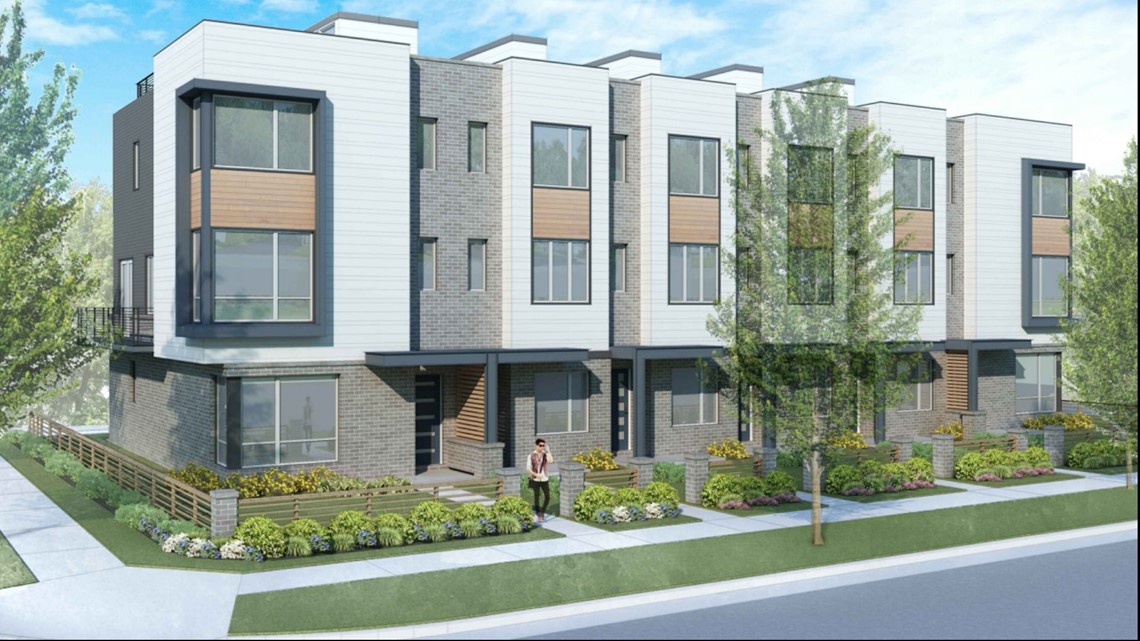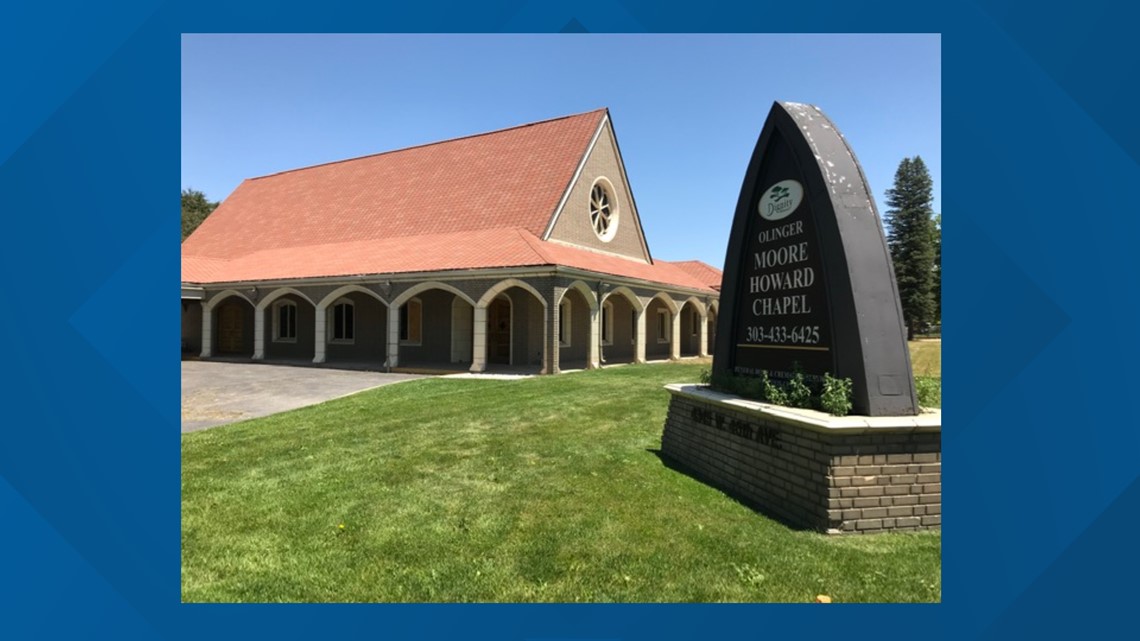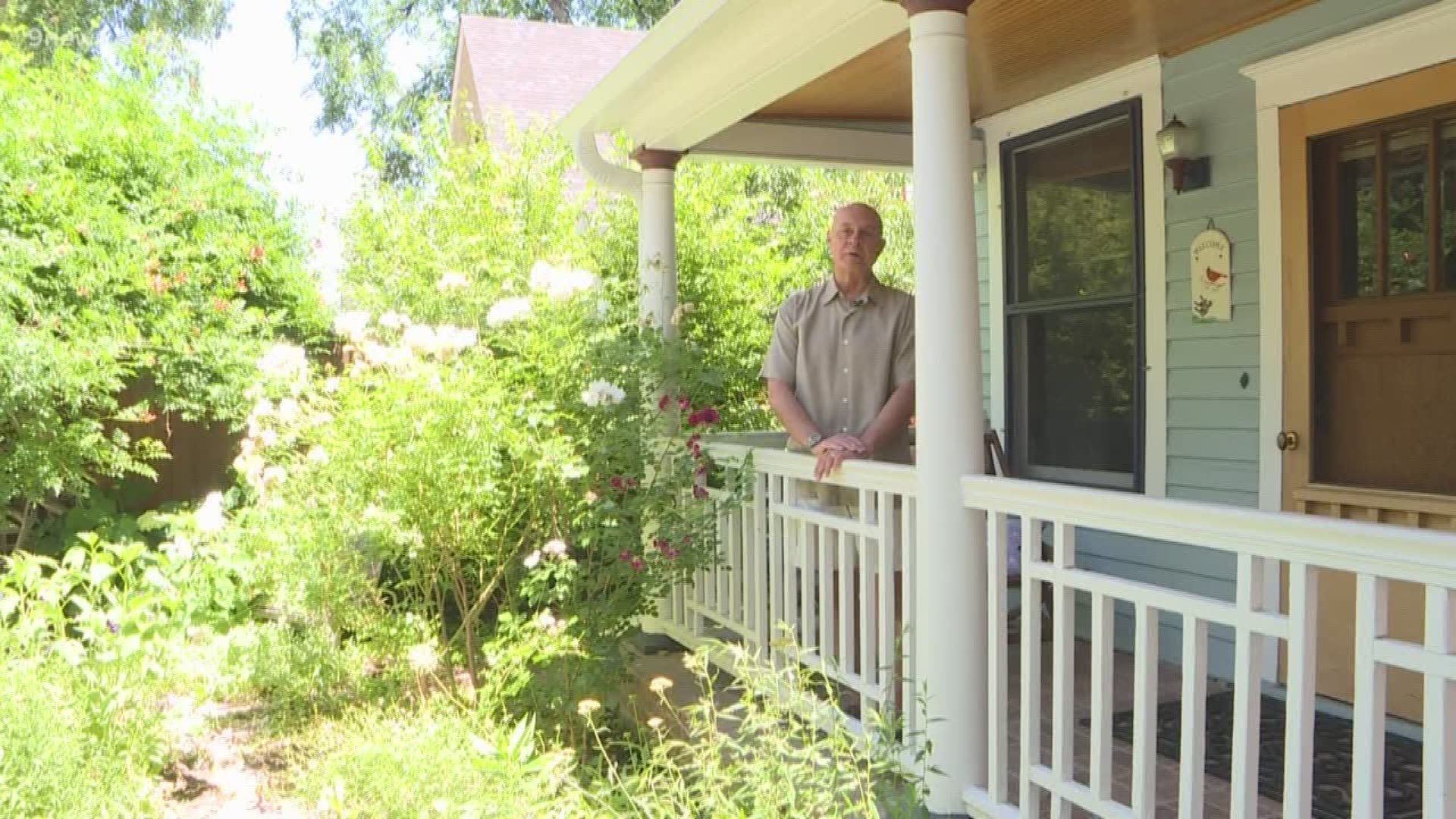DENVER — Children's safety, traffic and marijuana smoking on balconies overlooking a playground were among the concerns voiced by community members at a meeting Tuesday over plans to demolish a longtime funeral chapel in Denver's Berkeley neighborhood.
Denver-based Koelbel and Co. in May filed an application to demolish the Olinger Moore Howard-Berkeley Park Funeral Chapel and replace it with three-story townhouses. The chapel, which stopped hosting services earlier this year, is located at West 46th Avenue and Tennyson Street across from the Berkeley Lake Park and next to Centennial: A School for Expeditionary Learning.
"There were [also] concerns about impact to the history of the neighborhood, lack of affordable housing, unattractive building design...and overall concerns about the way [the] Berkeley neighborhood (especially Tennyson Street) has been developing/changing," said Bill Killam, a 33-year resident of Berkeley and spokesperson for Historic Berkeley Regis.
Historic Berkeley Regis is a group that advocates and educates for the preservation of the Berkeley neighborhood's historic resources.
The proposed development, which has not yet been approved, has drawn the ire of local community members, who want to preserve the building for its history. The City of Denver on June 12 found that the Berkeley Park Chapel has potential for landmark designation.
Full development plans submitted to the city call for three-story townhomes in seven buildings that will be made up of six, eight or 10 units, for a total of 58 units.


Ahead of the meeting, Historic Berkeley Regis posted to its Facebook page an announcement inviting the community to sit with a representative from Koelbel to discuss:
- Halting the proposed demolition and incorporating the chapel into the development.
- Preserving the chapel's exterior and interior architectural features.
- Including mixed-use (retail and residential) in the plans.
- Softening the design to fit the character of the neighborhood.
- Ceasing "up-zoning."
- Preserving the integrity of 46th Avenue Parkway — Tree Lawn.
- Creating a protective barrier between townhomes and the Centennial school.
- Preserving solar access to the school playground and gardens.
- Controlling traffic flow for safety of school children and pedestrians.
Killam said Kurt Koelbel, who represented Koelbel at the meeting, said the company would enter into discussions about the community's concerns.
"There was some discussion about many of these issues/concerns – no commitments except to look into things like the potential for real mixed use and changes to their design features," Killam said. "Koelbel reiterated that their plans were preliminary and conceptual, and said that they would work to incorporate some of the issues/concerns as they moved through their design process."
Koelbel emailed the following statement to 9NEWS:
"As a company who has developed in this neighborhood in the past and is also very aware of the city’s housing crisis, we are eager to work with members of the community to find a plan for this under-utilized block that balances the rights of the property owner with the needs and desire of the community."


A GoFundMe page supporting the filing for a landmark designation has raised $1,470 of its $875 goal. The cost to file for a landmark designation without owner consent is $875. There is also an online petition supporting the landmark designation.
Killam said Historic Berkeley Regis filed its landmark preservation application Wednesday.
The chapel is part of a the chain of Olinger funeral homes in Colorado owned by SCI Colorado Funeral Services LLC, a subsidiary of Houston-based Services Corporation International, according to Secretary of State business filings.
Denver's Community Planning and Development report from June 12 outlines the reasons for the funeral homes' potential for landmark designation:
Thomas and Loula Howard founded the Howard Mortuary, as the business was originally called, in 1917. It became a long-running family business, passed along from generation to generation. The building, initially housed at 1901 Colfax., moved to 1201 17th Ave. and expanded to its Berkeley location at 4345 W. 46th Ave. in May 1960.
The Berkeley neighborhood at the time was one of several growing Denver suburbs, and a newspaper advertisement at the time noted the communities of Wheat Ridge, Lakewood, Arvada, Westminster, Broomfield and Golden as "celebrating" the new location.
The ads also highlighted the architecture of the building, which was designed by J. Roger Musick, one of Denver's well-known mid-century architects.
SUGGESTED VIDEOS | Local stories from 9NEWS

